There are three “great wonders of Jesus’ priesthood: he offered his life for us once and for all; he continues even now to pray for each one of us; he will come again to take us with him”. Mankind is asked to “not close its heart” but to welcome the Father’s forgiveness, and it is the Mass which enables us to fully understand this beautiful truth.
“Sing to the Lord a new song, for he has done wondrous deeds”: the Pope began his meditation by reflection on Psalm 98[97], repeating that “the Lord has done wondrous deeds”. But, the Pope noted, the Lord’s “great wonder, the greatest, is his Son, the priest Son”. In the first reading, the Pope explained, “the author of the Letter to the Hebrews (9, 15:24-28) presents Christ, priest, mediator of this covenant that God makes with man: Jesus is the high priest”. And “the priesthood of Christ — we can say, as we see here — takes place in three moments, in three stages”.
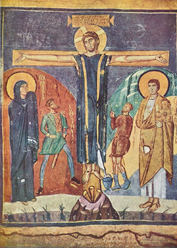
“The second wonder, which has a certain relationship with sin, is what the Lord does now”, he continued. In fact, “the Lord now intercedes, prays for us: in this moment, yes, while we pray here he prays for us, certainly for everyone, for all of us”. It is, indeed, “the intercession, the priest who intercedes: first he offered his life as ransom; now, alive before the Father, he intercedes”. At the Last Supper, recalled Francis, the Lord said: “I will pray for you, so that your faith may not fail”. Thus, Jesus “prays for us and this is certainty; Christ, our priest, prays for us”. Moreover, he noted, “how many times do we say to the priest ‘Father, pray for me, for my son, for my family, we have this problem?’”. We do it “because we know that the priest’s prayer has a certain strength, precisely in the sacrifice of the Mass”. And “Jesus prays for us in this moment, for each of us, and this is a wonder, a second wondrous thing”.
“The third wonder will be the end, when he comes again”, the Pontiff affirmed. He “will come again as a priest, yes, without a relationship with sin: the first time he laid down his life for the forgiveness of sins; the second time — now — he prays for us, for we are sinners and we go on in the Christian life; but when he comes the third time, it will not be in relation to sin; it will be to establish the final kingdom”. And the “most beautiful phrase of that day” will be: “Come, ye blessed, come, come, come to me”. Thus, “he will take us all with the Father: this is the priesthood of Christ of which the first reading speaks and this is the great wonder, that makes us sing a new song”. Francis also indicated “two contrasting points in today’s liturgy”. On the one hand, “there is this great wonder, this priesthood of Jesus in three stages — the one in which forgives sins, once for all; the one where he intercedes for us now; and what will happen when he returns.” But there is also the opposite, “the unforgivable blasphemy”, as we read in the passage from the Gospel of Mark (3:22-30). “It is hard”, the Pontiff said, “to hear Jesus say these things: but he says it, and if he says it, it’s true”.
Indeed, the Pope recalled the Lord’s words as recounted by Mark, “Truly, I say unto you, all will be forgiven the sons of men” — and we know that the Lord forgives everything if we open our hearts a little, everything! — “the sins and whatever blasphemies they utter” — even the blasphemies will be forgiven! “But whoever blasphemes against the Holy Spirit never has forgiveness, but is guilty of an eternal sin”. And so this person, when the Lord returns, will hear this phrase: “Follow me!” This is because, the Pope explained, “the great priestly anointing of Jesus was done by the Holy Spirit in Mary’s womb. In the ordination ceremony, priests are anointed with oil; and we always talk about priestly anointing”. And “Jesus, as high priest, received this anointing” in the first anointing in “the flesh of Mary through the work of the Holy Spirit”. So one who “blasphemes about this, blasphemes the foundation of God’s love, which is redemption, the re-creation; blasphemes the priesthood of Christ”.
“The Lord forgives everything”, explained Francis, “but whoever says these things has no forgiveness, doesn’t want to be forgiven, doesn’t allow himself to be forgiven”. And “this is the terrible thing about blaspheming the Holy Spirit: not allowing oneself to be forgiven, because it denies the priestly anointing of Jesus through the Holy Spirit”.
And so, the Pope continued, “today we have heard, in this Liturgy of the Word, the great wonders of the priesthood of Christ who offers himself for the forgiveness of sins, who continues to pray for us now, and who will come again to take us with him”. It is truly a “great wonder”. However, the Holy Father added, “we also heard that there is an ‘unforgivable blasphemy’ and not because the Lord does not want to forgive all, but because this person is so closed that he does not allow himself to be forgiven: blaspheming this great wonder of Jesus”.
In conclusion, Francis suggested that “today it will do us good, during Mass, to think that here on the altar the living memory is made — because he will be present there — of Jesus’ first priesthood, when he offers his life for us. There is also the living memory of the second priesthood, because he will pray here; but also, in this mass — we will say it after the “Our Father” — there is that third priesthood of Jesus, when he comes again, and our hope of the glory”. Therefore, the Pope emphasized, “in this Mass let us think of these beautiful things and ask for the the Lord’s grace so that our hearts will never close — never close! — to this wonder, this great gift”.

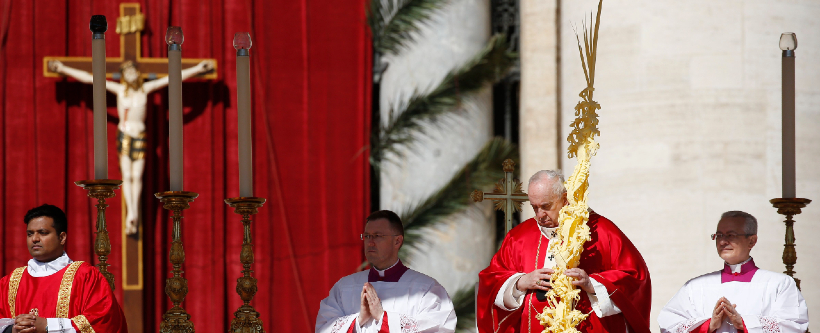
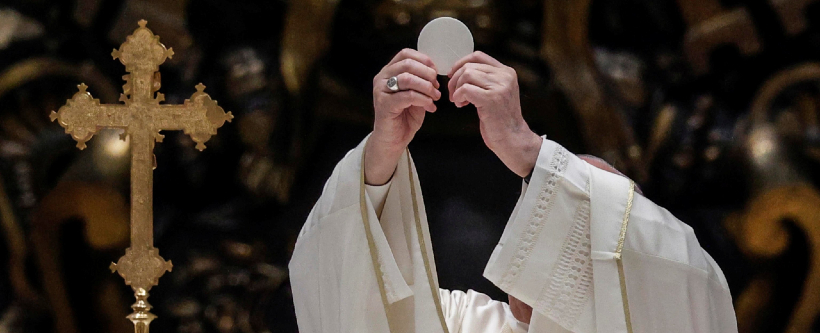
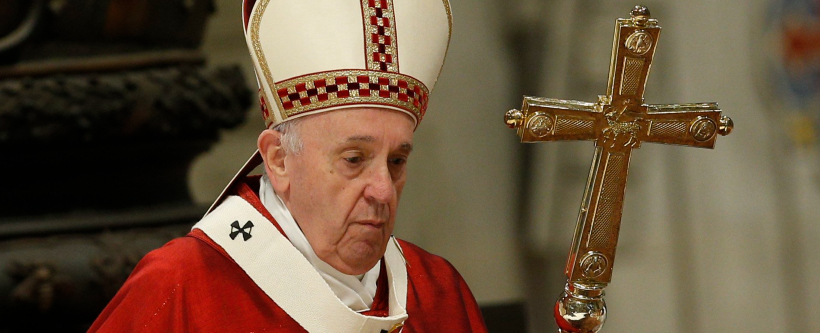
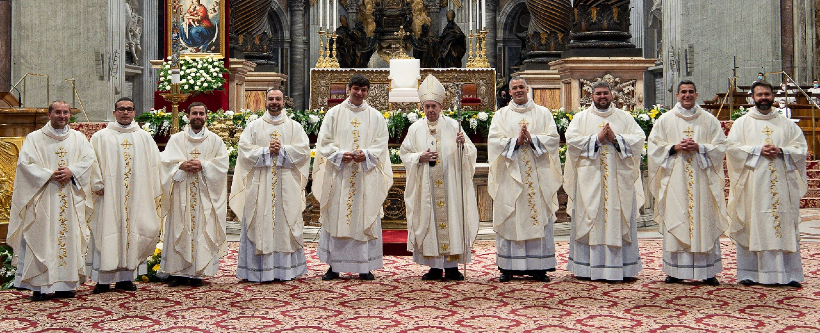
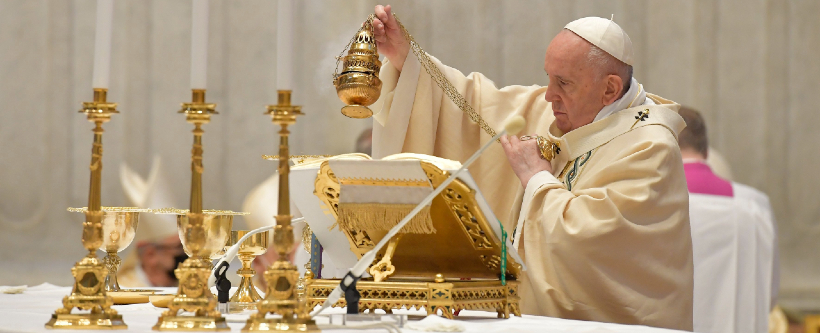
Facebook Comments